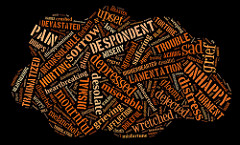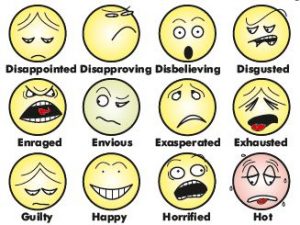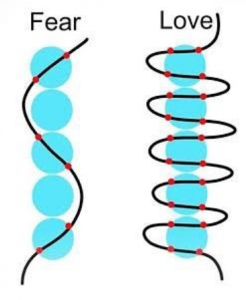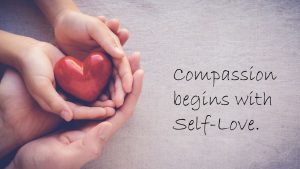In this month’s blog, I would like to highlight men’s health. The essential differences between men and women are apparent, according to British psychologist Simon Baron-Cohen. He stated that some men struggle to talk about feelings because they are hard-wired in the brain for ‘systemising’ to understand and build systems. However, it isn’t to say that this is the only reason why men rarely seek therapy or visit the doctor as regularly as women. Perhaps, there is something beyond our biology but more to do with one’s environment. Men’s health matters as much as women’s, and I want to address it here because there is a disparity in societal awareness.
 If you research men’s health, you will that men are just as concerned with some of the health issues faced by women. Some of those issues, according to WebMD, include depression, anxieties, panic, alcoholism, heart disease, prostate problems, erectile dysfunction and hair loss, just to name a few. In the UK, one in eight men experiences health issues, specifically around Mid-life as an existential crisis. There is an unconscious transgenerational trance that put pressure on men in modern societies. The pressure includes being the breadwinner, the provider, the protector, the saviour. These unhelpful roles and expectations put a continuous constraint on men on a daily basis. Men’s health matter, and we can break free from the limitation of those archaic beliefs. We can all do our part in changing our expectation of the men in our lives. We can encourage our partner, our dads, our grandad, and our male friends to be opened to their feelings and emotions, including concerns for their health and wellbeing.
If you research men’s health, you will that men are just as concerned with some of the health issues faced by women. Some of those issues, according to WebMD, include depression, anxieties, panic, alcoholism, heart disease, prostate problems, erectile dysfunction and hair loss, just to name a few. In the UK, one in eight men experiences health issues, specifically around Mid-life as an existential crisis. There is an unconscious transgenerational trance that put pressure on men in modern societies. The pressure includes being the breadwinner, the provider, the protector, the saviour. These unhelpful roles and expectations put a continuous constraint on men on a daily basis. Men’s health matter, and we can break free from the limitation of those archaic beliefs. We can all do our part in changing our expectation of the men in our lives. We can encourage our partner, our dads, our grandad, and our male friends to be opened to their feelings and emotions, including concerns for their health and wellbeing.
 Men have genuine health concerns, which we should all validate. Suicide, for example, are higher in men than women, resulting from depression. Still, there is a lack of awareness, ineffective communication and unhealthy work-life balance from expectation in the workplace and at home. We can all help to minimise men’s health risks and have compassion for the inner struggle they faced and unable to vocalise.
Men have genuine health concerns, which we should all validate. Suicide, for example, are higher in men than women, resulting from depression. Still, there is a lack of awareness, ineffective communication and unhealthy work-life balance from expectation in the workplace and at home. We can all help to minimise men’s health risks and have compassion for the inner struggle they faced and unable to vocalise.
“Health is the greatest gift, contentment is the greatest wealth.” – Buddha.
Here’s how you can help
- Trust your instinct when you notice the subtle signs
If you are a wife, girlfriend or partner and suspect that your spouse struggles with his mental health. Trust your instinct and speak out for him. With his systemising brain, he might not be able to express the feelings and emotions associated with the physical symptoms of struggles. It would be an intimate experience within the relationship if you initiate the conversation. You might begin with something like, “I wonder if you are struggling with work, I noticed that you have been tired from working late all this week”, or “I wonder if you are experiencing something difficult because you have been avoiding being intimate with me?”. The subtle signs that you notice could be the beginning of a physical health issue.
- Begin with your feelings
 When you being a conversation with an acknowledgement of your feelings and emotions, it gives the other person permission to express theirs. Most men struggle to tell you how they feel and what they think. If you make a start, it helps to normalise freedom of expression. It doesn’t come naturally to men, remember. It does not mean that they can’t learn. When you express your feeling toward them, it also helps them see, hear and understand your concern. You might begin with, “I feel like we have drifted apart, and I feel sad about that; what has been going on for you lately?” or “I feel sad and experience a distance between us because we have not been intimate, is there something you are feeling also?”
When you being a conversation with an acknowledgement of your feelings and emotions, it gives the other person permission to express theirs. Most men struggle to tell you how they feel and what they think. If you make a start, it helps to normalise freedom of expression. It doesn’t come naturally to men, remember. It does not mean that they can’t learn. When you express your feeling toward them, it also helps them see, hear and understand your concern. You might begin with, “I feel like we have drifted apart, and I feel sad about that; what has been going on for you lately?” or “I feel sad and experience a distance between us because we have not been intimate, is there something you are feeling also?”
- You cannot force what doesn’t come naturally
Generally, men will resist talking about feeling and emotion because they are not naturally emphatic. They should not be forced to have a ‘girly’ talk but rather encourage. They could be a mindset that prevents them from expressing their feeling. It might have been from conditioning in childhood that made them considered talking and showing emotions as signs of weakness. If that’s the case, we have to help them unlearned those unhelpful conditions. We would do this with love and patient, not shouting or nagging.
“If one speaks or act with a pure mind, happiness and love will follow.” – Buddha.
- There are times when you need to take control
You might find that you will need to take control of their health matters. I don’t know if you feel the same, but I often have to book my husband’s doctors appointment for him. I even had to schedule his COVID-19 booking because he kept postponing the task. There might be fear in that. There might be a mindset that says, why fix it when it still works? Taking control and taking charge of your man’s health is you addressing the avoidance. You might even consider initiating a discussion as taking control. It is easy to bury our heads in the sand, but it shouldn’t be ignored when it comes to health and wellbeing.
- Validate and affirm their experiences
 Sometimes it is difficult to express our emotions and feelings. The intensity of our emotions can control us and take over the logical, practical mind. We can’t work or do anything if we spend all our time in tears or emotional turmoil. It can feel lonely when we are consumed with emotions. When our emotions overwhelm us, we can validate them and accept them rather than repress them. We need to make friends with our feelings. We can help our husband, boyfriend or partner by validating emotions that overwhelmed them and affirm their struggle. In the acknowledgement, you are allowing them to be okay as they grapple with the inner brawl.
Sometimes it is difficult to express our emotions and feelings. The intensity of our emotions can control us and take over the logical, practical mind. We can’t work or do anything if we spend all our time in tears or emotional turmoil. It can feel lonely when we are consumed with emotions. When our emotions overwhelm us, we can validate them and accept them rather than repress them. We need to make friends with our feelings. We can help our husband, boyfriend or partner by validating emotions that overwhelmed them and affirm their struggle. In the acknowledgement, you are allowing them to be okay as they grapple with the inner brawl.
- Appraisal, not appeasing
Who doesn’t like a compliment? The majority of us love being complimented and appraised. However, sometimes people struggle to say something nice. It is more habitual for us to critique rather than being pleasant. Many of us take our loved ones for granted, which is unhelpful. If we want to help bring awareness to our male partner’s health, we need to appraise his ego. But, be careful not to appease him by satisfying his egoic or narcissistic needs. An appraisal comes from the heart, and it is expressed with kindness. But, an appeasing comes from a place of fear.
“Never let your fear decide your future.” – Buddha.
- Do not shame, blame or guilt-trip
It takes a lot of courage for people to share. It can seem like they have to build up their inner strength to talk about something personal, especially if it is something intimate and private. As a listening, it is most unhelpful to shame, judge or blame the person in the disclosure. Even if you displayed signs of shock or disbelief, it could be off-putting. Notice your reactions in response to what was shared when a man wants to address his hair loss problem, for example. There are deeper psychological emotions behind the feelings being displayed. For the man, it might be a loss of his fragility or virility. Never make them feel guilty for what men share because all things disclosed are genuine concerns and valid.
“It is easy to see the fault in others, but it is more difficult to see one’s own faults.” – Buddha.
What I have highlighted here is no mean extensive to men’s mental health or worries. You can probably come up with many other ways to help spread men’s health awareness. It starts with you, and you can make a huge difference someone whether he is a friend, family member or work colleague. With loving-kindness, you can really help men open up about their health concerns especially when you show a willingness to listen and express interests in their health and wellbeing.
“No one can walk the path for you, but you can share and unburdern you load.” – Unknown.
Do you find this blog helpful? If you like this post, I love to hear from you on my Twitter Page.



 Mental health has been a challenge that has recently spiked on the global scale since the pandemic. It has long been a part of Western societies since the birth of psychiatry, and possibly longer than that. Mental disturbances are a challenge that poses psychological and physical discomfort in the individual. Mental disturbances can range from worrying about your loved ones to concern for their safety and welfare. It is any disturbances that are constructed in the mind. The longer we are exposed to these disturbances, the more problem it poses on our mental health. Thus, our mental wellness depends on the way we think and how we construct our inner world.
Mental health has been a challenge that has recently spiked on the global scale since the pandemic. It has long been a part of Western societies since the birth of psychiatry, and possibly longer than that. Mental disturbances are a challenge that poses psychological and physical discomfort in the individual. Mental disturbances can range from worrying about your loved ones to concern for their safety and welfare. It is any disturbances that are constructed in the mind. The longer we are exposed to these disturbances, the more problem it poses on our mental health. Thus, our mental wellness depends on the way we think and how we construct our inner world. Mental health awareness is the ability to develop compassion for ourselves and our mental construct as well as the mental capability of another. It is also about treating ourselves and others the way we would like to be treated. It is about watching our thoughts and thinking well of ourselves and others. Having an awareness of our thought processes give us realisation. In the realisation, we become compassionate with ourselves and how our mind works things out.
Mental health awareness is the ability to develop compassion for ourselves and our mental construct as well as the mental capability of another. It is also about treating ourselves and others the way we would like to be treated. It is about watching our thoughts and thinking well of ourselves and others. Having an awareness of our thought processes give us realisation. In the realisation, we become compassionate with ourselves and how our mind works things out. You are more than your mind. Therefore, you are more than the way you think and what you think. Thinking is just what you happen to do because the brain does not shut up. Thoughts will always intrude on the psyche. But, thought forms, and then they disappear. When you give focus, attention and meaning to the ideas, your thinking and other thought-forms arise to become problematic. It is at this point that having a
You are more than your mind. Therefore, you are more than the way you think and what you think. Thinking is just what you happen to do because the brain does not shut up. Thoughts will always intrude on the psyche. But, thought forms, and then they disappear. When you give focus, attention and meaning to the ideas, your thinking and other thought-forms arise to become problematic. It is at this point that having a 
 A stressful situation for one person will inevitably be different. People are divergent and will have a different way to view or manage problems. From our lived experiences, these individuals can often draw upon their internal resources to cope with stress. However, it does not mean that you can’t learn to build your inner strength.
A stressful situation for one person will inevitably be different. People are divergent and will have a different way to view or manage problems. From our lived experiences, these individuals can often draw upon their internal resources to cope with stress. However, it does not mean that you can’t learn to build your inner strength. How we think and react can create or break the situation into a stressful or stress-free one. There are three main types of stress; acute, episodic and chronic. I shall now review the different kinds of stress in more details.
How we think and react can create or break the situation into a stressful or stress-free one. There are three main types of stress; acute, episodic and chronic. I shall now review the different kinds of stress in more details. Knowing your trigger will help you notice your stress pattern. Knowing this fact may be helpful to master your internal emotional reaction in a stressful situation. Knowing is an acknowledgement or awareness of what was previously elusive to you. It is about being conscious of what was unconscious about you.
Knowing your trigger will help you notice your stress pattern. Knowing this fact may be helpful to master your internal emotional reaction in a stressful situation. Knowing is an acknowledgement or awareness of what was previously elusive to you. It is about being conscious of what was unconscious about you. Know your reaction will help you notice how you were in the situation. Knowing this fact may help you see, feel, or think about your response and healthy or unhealthy. Knowing that will help you sense how you are within yourself and how you responded to the situation, including those around you. Knowing this will help you decide whether or not you might need to change and try reacting differently.
Know your reaction will help you notice how you were in the situation. Knowing this fact may help you see, feel, or think about your response and healthy or unhealthy. Knowing that will help you sense how you are within yourself and how you responded to the situation, including those around you. Knowing this will help you decide whether or not you might need to change and try reacting differently. Knowing what you think about will help you make sense of your inner voice. Listening to what you say and how you talk to yourself in a stressful situation will help you become in control of the situation, rather than allowing the problem to control you. We are often overly critical of ourselves. We can be the harshest critique. But, if we can be compassionate and kinder to ourselves, we can be free of the thoughts and let them go easier.
Knowing what you think about will help you make sense of your inner voice. Listening to what you say and how you talk to yourself in a stressful situation will help you become in control of the situation, rather than allowing the problem to control you. We are often overly critical of ourselves. We can be the harshest critique. But, if we can be compassionate and kinder to ourselves, we can be free of the thoughts and let them go easier. Now, try learning to speak to yourself differently. If you used to shout at yourself internally, why not try speaking softly this time. Hopefully, you will notice that the impact is dramatically reduced. You may start to notice an alternate feeling associated with the gentle inner voice. You also may hear yourself speaking using contrasting words, kinder and loving expression. The change begins with small and enlarges, like a ripple.
Now, try learning to speak to yourself differently. If you used to shout at yourself internally, why not try speaking softly this time. Hopefully, you will notice that the impact is dramatically reduced. You may start to notice an alternate feeling associated with the gentle inner voice. You also may hear yourself speaking using contrasting words, kinder and loving expression. The change begins with small and enlarges, like a ripple.
 Sleep is
Sleep is  During the nocturnal hours, your body’s naturally crave sleep because your internal biological clock or the circadian rhythm is synchronised with the day/night cycle of the diurnal rhythm. The
During the nocturnal hours, your body’s naturally crave sleep because your internal biological clock or the circadian rhythm is synchronised with the day/night cycle of the diurnal rhythm. The  Have a goal in mind for your bedtime (sleep time). This is a time that you want to be in bed, lights out, eyes shut and breathing easily.
Have a goal in mind for your bedtime (sleep time). This is a time that you want to be in bed, lights out, eyes shut and breathing easily. I firmly believe that rituals are helpful. Have a bedtime routine and pattern that you stick to help you build a structure around your sleeping habit. I cannot stress the importance of sticking to your routines and think positively about enjoying the mundane.
I firmly believe that rituals are helpful. Have a bedtime routine and pattern that you stick to help you build a structure around your sleeping habit. I cannot stress the importance of sticking to your routines and think positively about enjoying the mundane. I give myself around 10-15 minutes for relaxation. In that time, I may mediate or listen to soothing, relaxing music to ease myself to sleep. You might find my
I give myself around 10-15 minutes for relaxation. In that time, I may mediate or listen to soothing, relaxing music to ease myself to sleep. You might find my  By 23.00, lights out for me, regardless of whether my husband or I am ready. I turned off the light.
By 23.00, lights out for me, regardless of whether my husband or I am ready. I turned off the light.
 There are many examples of self-care, including regular exercise, eating well, getting enough sleep, be in nature and taking frequent breaks or rest. But, it might help to think of self-care as a fun part of your daily ritual, rather than something you are compelled to do, like a chore. I emphasise fun and playful activities that you enjoy on a daily basis because sometimes we think of self-care only periodically.
There are many examples of self-care, including regular exercise, eating well, getting enough sleep, be in nature and taking frequent breaks or rest. But, it might help to think of self-care as a fun part of your daily ritual, rather than something you are compelled to do, like a chore. I emphasise fun and playful activities that you enjoy on a daily basis because sometimes we think of self-care only periodically. The mind never sleeps. The conscious mind is continually evaluating the input from our senses. The unconscious mind never shut off because it automates body regulatory, circuitry systems, such as keeping a steady sinus rhythm. Meditation is a state of being still in the body so that you can go within the psyche to observe thoughts, listen to what you are thinking about and notice comes up for you when cognitively being aware of what is in your mind. What you think you will manifest. Be sure to think only positive thoughts.
The mind never sleeps. The conscious mind is continually evaluating the input from our senses. The unconscious mind never shut off because it automates body regulatory, circuitry systems, such as keeping a steady sinus rhythm. Meditation is a state of being still in the body so that you can go within the psyche to observe thoughts, listen to what you are thinking about and notice comes up for you when cognitively being aware of what is in your mind. What you think you will manifest. Be sure to think only positive thoughts. A loving act for me includes feeling joyful, having fun and laughing at myself, lovingly. It is ultimately a knowing that you embrace with heart and soul. It is enough to say things like; I love my hair today, I love how I handle that argument today, I love the way I spoke my truth, even though not everyone agreed. It is quite alright to say; I love my voice, I love my flaws, etc. Whatever you dislike about yourself, try to reverberate your thoughts by expressing and vocalising your love, out loud.
A loving act for me includes feeling joyful, having fun and laughing at myself, lovingly. It is ultimately a knowing that you embrace with heart and soul. It is enough to say things like; I love my hair today, I love how I handle that argument today, I love the way I spoke my truth, even though not everyone agreed. It is quite alright to say; I love my voice, I love my flaws, etc. Whatever you dislike about yourself, try to reverberate your thoughts by expressing and vocalising your love, out loud.
 As a psycho-spiritual therapist, I believe that the physical body has two ‘minds’; the cognitive-mind and the heart-mind. Therein, the brain is the cognitive-mind, and the heart is the heart-mind. It might help if you think of the brain as the all-knowing ‘supercomputer’. Memories, experiences, and programmings are stored. Thus, the heart is the ‘operator’, the user, the decision-maker. Imagine making your decisions from the heart. Henceforth, I want to discuss the concept of heart-mind further because I believe that this is the primary and the brain is secondary.
As a psycho-spiritual therapist, I believe that the physical body has two ‘minds’; the cognitive-mind and the heart-mind. Therein, the brain is the cognitive-mind, and the heart is the heart-mind. It might help if you think of the brain as the all-knowing ‘supercomputer’. Memories, experiences, and programmings are stored. Thus, the heart is the ‘operator’, the user, the decision-maker. Imagine making your decisions from the heart. Henceforth, I want to discuss the concept of heart-mind further because I believe that this is the primary and the brain is secondary. The heart has an energy centre known as the
The heart has an energy centre known as the  If you use your mind to think about making a decision, it is safe to say that you are not as connected to your heart-mind. If you take time to ponder a decision or find it difficult to make up your mind, you are probably mind-identified. Decision-making from the heart-mind often comes from a ‘feeling’ or an intuition. The heart is our source of love, creativity and inspiration. Sometimes, decisions from the heart are illogical, baseless, spontaneous and impulsive.
If you use your mind to think about making a decision, it is safe to say that you are not as connected to your heart-mind. If you take time to ponder a decision or find it difficult to make up your mind, you are probably mind-identified. Decision-making from the heart-mind often comes from a ‘feeling’ or an intuition. The heart is our source of love, creativity and inspiration. Sometimes, decisions from the heart are illogical, baseless, spontaneous and impulsive. Place your hand on your heart and literally listens to the harmonious, rhythmic heart beating. It should beat in a gentle rhythm, the soft sounds of the tempo should be melodic and not like an offbeat syncopation. Listen to your gentle, beating heart and notice your senses. Do you feel any tingling, flood of warmth or goosebumps? These are the sensation of energy moving through your body, surging and filling you with good feelings. A loving feeling has the highest frequency, as mentioned in last month’s
Place your hand on your heart and literally listens to the harmonious, rhythmic heart beating. It should beat in a gentle rhythm, the soft sounds of the tempo should be melodic and not like an offbeat syncopation. Listen to your gentle, beating heart and notice your senses. Do you feel any tingling, flood of warmth or goosebumps? These are the sensation of energy moving through your body, surging and filling you with good feelings. A loving feeling has the highest frequency, as mentioned in last month’s  When you speak to others, notice your language, the word you use and in what context. If you can relate to others from an adult to adult, not from an adult to a child or a parent, you are halfway to using the I/thou language. This concept simply means speaking to someone compassionately while taking responsibility for your feeling, words, and language. Here is an example of an I/though language:
When you speak to others, notice your language, the word you use and in what context. If you can relate to others from an adult to adult, not from an adult to a child or a parent, you are halfway to using the I/thou language. This concept simply means speaking to someone compassionately while taking responsibility for your feeling, words, and language. Here is an example of an I/though language:
 Growing up with traditional Buddhist practices, I often thought that attending the temple for prayer was tedious. However, as I sat through the Thai Buddhist monks chanting, I instantly felt mentally relaxed, peaceful and calmed. The melodic sounds of the chant were mesmerising.
Growing up with traditional Buddhist practices, I often thought that attending the temple for prayer was tedious. However, as I sat through the Thai Buddhist monks chanting, I instantly felt mentally relaxed, peaceful and calmed. The melodic sounds of the chant were mesmerising. Love, for example, has a high frequency around 500Hz, whereas, fear has a low frequency at 100Hz. When you feel love for yourself or others, you cannot and will not feel the fear. Thus, it is worth choosing a positive feeling or emotion, which is better for health and wellness.
Love, for example, has a high frequency around 500Hz, whereas, fear has a low frequency at 100Hz. When you feel love for yourself or others, you cannot and will not feel the fear. Thus, it is worth choosing a positive feeling or emotion, which is better for health and wellness. Love has high frequencies which are beneficial to instantly lift your moods and emotional frequencies. When you feel love and appreciation, negative or low frequencies cannot exist at the same moment. If you find it difficult to ‘feel love’ trying doing something that you truly love. A loving feeling is a feeling of immense happiness, joy, connection, fulfilment, fondness, warmth, and tenderness. It is a blissful feeling towards someone or something. A true loving feeling is unconditional and unbounded. For me personally, I love water, nature and the sounds of a Wren singing in the distant, as I bathed in the warm sunny sky. You get the picture.
Love has high frequencies which are beneficial to instantly lift your moods and emotional frequencies. When you feel love and appreciation, negative or low frequencies cannot exist at the same moment. If you find it difficult to ‘feel love’ trying doing something that you truly love. A loving feeling is a feeling of immense happiness, joy, connection, fulfilment, fondness, warmth, and tenderness. It is a blissful feeling towards someone or something. A true loving feeling is unconditional and unbounded. For me personally, I love water, nature and the sounds of a Wren singing in the distant, as I bathed in the warm sunny sky. You get the picture. Gratitude has high frequencies also, which can instantly transcend your emotions. It can instantly lift your low moods to a good mood. But, you have to really believe and be grateful. There has to be an element of humbleness within this process in order to feel thankful for something. For example, showing appreciation for your good health, being appreciative of your partner, be thankful to your family and friends by simply saying it out loud. I feel grateful for my good health. I feel grateful to my partner for his love and support. I feel grateful for my family. If you find it hard to say that you are grateful to the person, say it in your mind – they will receive the feeling all the same. Make a list of the things that make you grateful.
Gratitude has high frequencies also, which can instantly transcend your emotions. It can instantly lift your low moods to a good mood. But, you have to really believe and be grateful. There has to be an element of humbleness within this process in order to feel thankful for something. For example, showing appreciation for your good health, being appreciative of your partner, be thankful to your family and friends by simply saying it out loud. I feel grateful for my good health. I feel grateful to my partner for his love and support. I feel grateful for my family. If you find it hard to say that you are grateful to the person, say it in your mind – they will receive the feeling all the same. Make a list of the things that make you grateful. You can build a mantra, an affirmation or prayer into your daily life that includes feeling love for yourself and others. A mantra can be something that you repeat during meditations, walking, exercising or when doing a mundane task. An affirmation is a statement that you keep repeating until it becomes second nature. A prayer can be anything that you say with closed eyes to God, The Higher Power, Holy Spirit or the Universe.
You can build a mantra, an affirmation or prayer into your daily life that includes feeling love for yourself and others. A mantra can be something that you repeat during meditations, walking, exercising or when doing a mundane task. An affirmation is a statement that you keep repeating until it becomes second nature. A prayer can be anything that you say with closed eyes to God, The Higher Power, Holy Spirit or the Universe.




 It often helps to name our emotions. This is because emotion has an
It often helps to name our emotions. This is because emotion has an  Qualities of compassion promote positive emotional response and mindset; however, it should not be compared to empathy. Compassion is a deep feeling for oneself and another person, whereas empathy is the ability to be alongside the other person, or in their shoes. The emotional response when perceiving suffering in oneself or another triggers an authentic desire and wishes to take action, to assist, to alleviate and to help – but not to eliminate or deny.
Qualities of compassion promote positive emotional response and mindset; however, it should not be compared to empathy. Compassion is a deep feeling for oneself and another person, whereas empathy is the ability to be alongside the other person, or in their shoes. The emotional response when perceiving suffering in oneself or another triggers an authentic desire and wishes to take action, to assist, to alleviate and to help – but not to eliminate or deny. I want to discuss the concept of masking in Psychology further.
I want to discuss the concept of masking in Psychology further. Fear not, I can offer some helpful tips to those individuals who’d like to remove their (psychological) masks – but keep the COVID-19 cover on (for now). Here’s how:
Fear not, I can offer some helpful tips to those individuals who’d like to remove their (psychological) masks – but keep the COVID-19 cover on (for now). Here’s how: